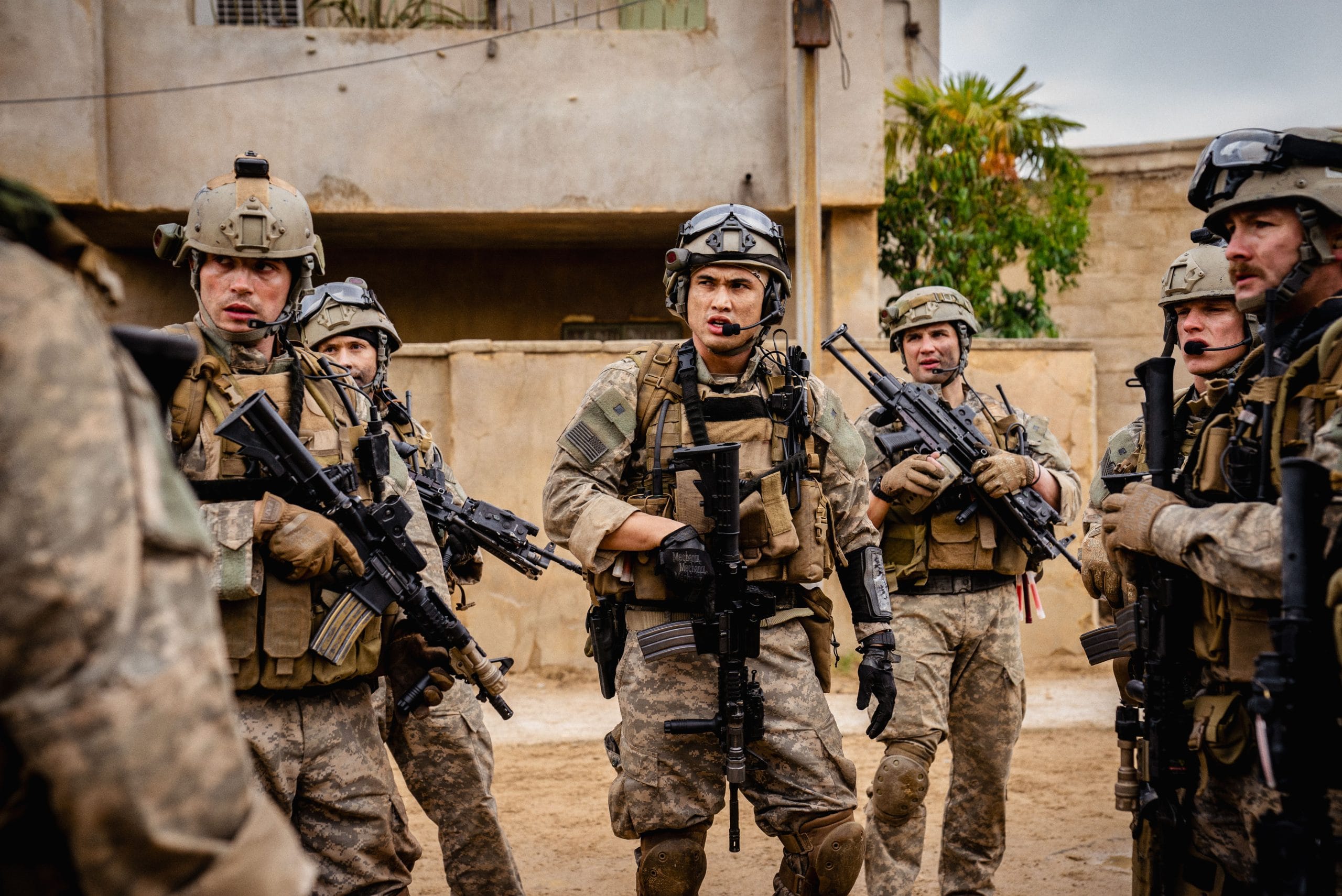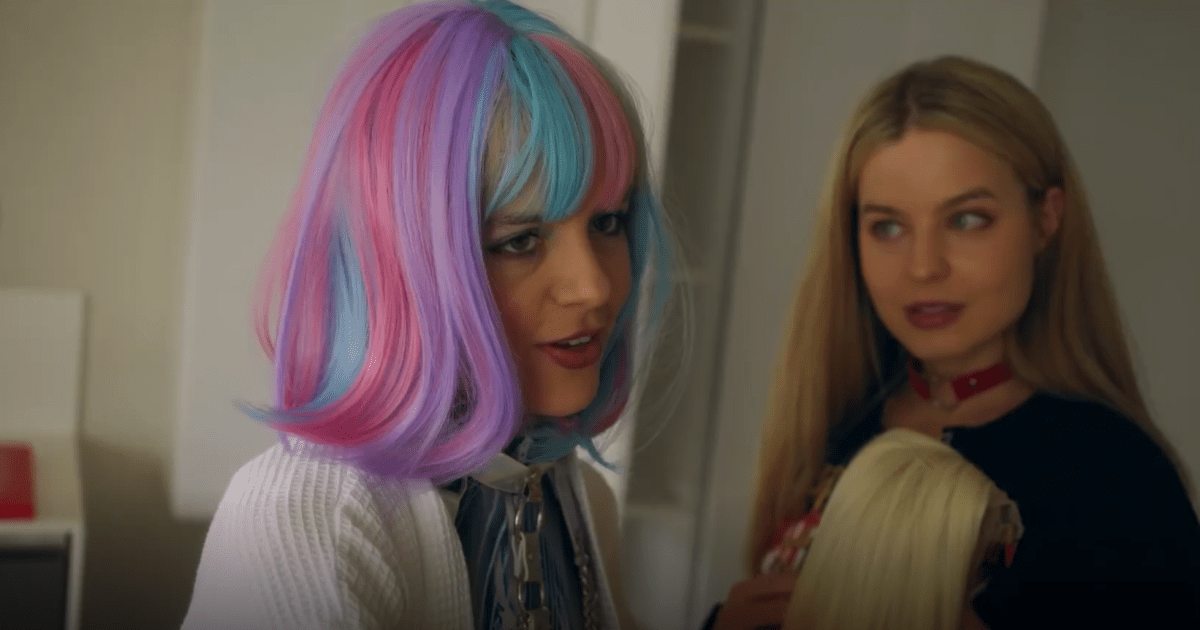Warfare, a collaboration between filmmaker Alex Garland and Iraqi War veteran and cinematic military adviser Ray Mendoza, is a bracing, intense work of experimental filmmaking. Based on the recollections of past and present soldiers surrounding a single particular skirmish during the Iraq/US war in 2006, Warfare doesn’t have a plot to speak of. It follows a brutal firefight from start to finish; no stopping to add storylines or to give characters backstory. The plot is survival. The unit of soldiers is the only character. And as a depiction of the chaos of battle, it has a degree of subtlety that makes a major impression on the viewer and balances out all of its brutal violence and grief. Tandem writer/directors Garland and Mendoza get maximum mileage out of a incident that has been stripped to the gristly bones.
Warfare looks at a Navy SEAL team on a mission in Ramadi, Iraq on November 19, 2006. Split up into three separate units, the objective is to position snipers and provide security in a neighbourhood in advance of the Marines arriving the following day. As often happens in war, things don’t go according to plan and one of the units becomes pinned down inside of a residential home (with the families renting the property still there), and instead of a routine mission, the situation becomes a fight for survival and preservation of life, with several soldiers gravely injured from explosives, IEDs, and small arms fire.
Warfare locks itself into the moment after a brief opening moment of frivolity and levity among the men in their twenties and thirties, unaware that a fight for their lives is on the horizon. From the opening where the SEALs quietly sneak into position under cover of night to their chaotic, perpetually delayed exfiltration from a dangerous situation, Warfare refuses to let up or slow down to fill the viewer in on anything that isn’t specific to the mission itself. Garland (Civil War, Ex Machina, Annihilation) and Mendoza throw jargon at the viewer, pay close attention to tiny details, and illustrate how even the most disciplined of military units can fall into disarray and confusion in the heat of battle.

Garland and Mendoza have selected a top notch cast of actors that includes some fairly recognizable faces, which is great for audience trying to connect with people who won’t get much in the way of traditional development. There are clearly some soldiers who are in charge of their particular fields of expertise (Will Poulter, Charles Melton, Joseph Quinn, and D’Pharaoh Woon-A-Tai, who plays Mendoza’s on screen surrogate, a communications expert). But even those soldiers are depicted as part of a much larger machine, one that only succeeds if every moving part stays in top working order. Their mission isn’t a heroic one at heart. Their mission begins as a routine order and becomes a battle for survival. There are moments of selflessness, and the stakes are high for the soldiers caught up in an escalating situation with minimal supports, but the viewer never knows exactly what the major significance of their mission was in the first place. There’s no time to explain.
In its depiction of a battle in as detailed a manner as possible, and using only the memories of those involved as points of reference, Warfare has a lot more in common with documentaries like Restrepo, Korengal, and Combat Obscura than other fictional leaning war movies. Garland and Mendoza recreate the section of Ramadi where the battle takes place in striking detail and with exacting specification. In terms of pacing, Warfare attempts to tell things in as close to real time as possible, and in the heat of the moment, seconds can feel like hours and as if everyone is juggling chainsaws trying to keep up. Sometimes the sound drops away with eerie dread, other times its obscured by the nature of an explosion wreaking havoc on the soldier’s eardrums, and at the height of desperation there’s always a cacophony of stimuli all competing for attention and acknowledgement. As always with a Garland production, the sound design is some of the best one will ever experience in a theatre, and on a visual level, the largely handheld cinematography comes across with such frightening accuracy that nothing looks artificial.
Best of all, Warfare not only depicts a battle for survival amid members of a highly trained military force, but also poignantly shows that despite all of their training, sometimes even they are at a loss for what to do. Resolve remains, survival instincts kick in, strategies are vetted, and sometimes these soldiers are still at a loss. In a film that refuses to glorify the brutality of war while depicting it in sometimes uncomfortable detail, therein lies a great deal of humanity and empathy. There’s no room for error, but when things get real, there’s also little definition of success beyond getting out of there in one piece. Warfare won’t be to everyone’s taste, but as an exercise in faux-verite filmmaking, it’s marvellous.
Warfare opens in theatres everywhere on Friday, April 11, 2025.




